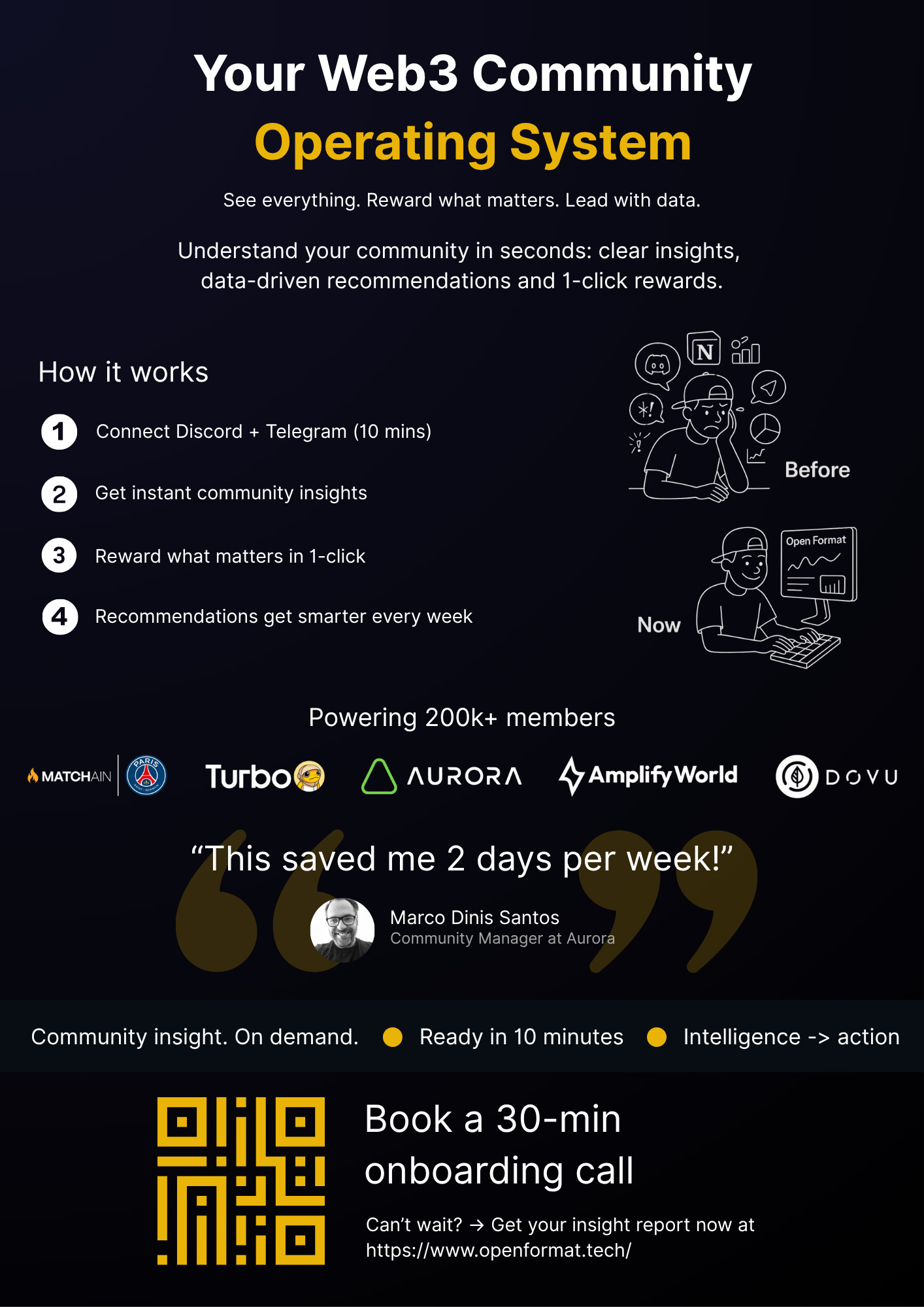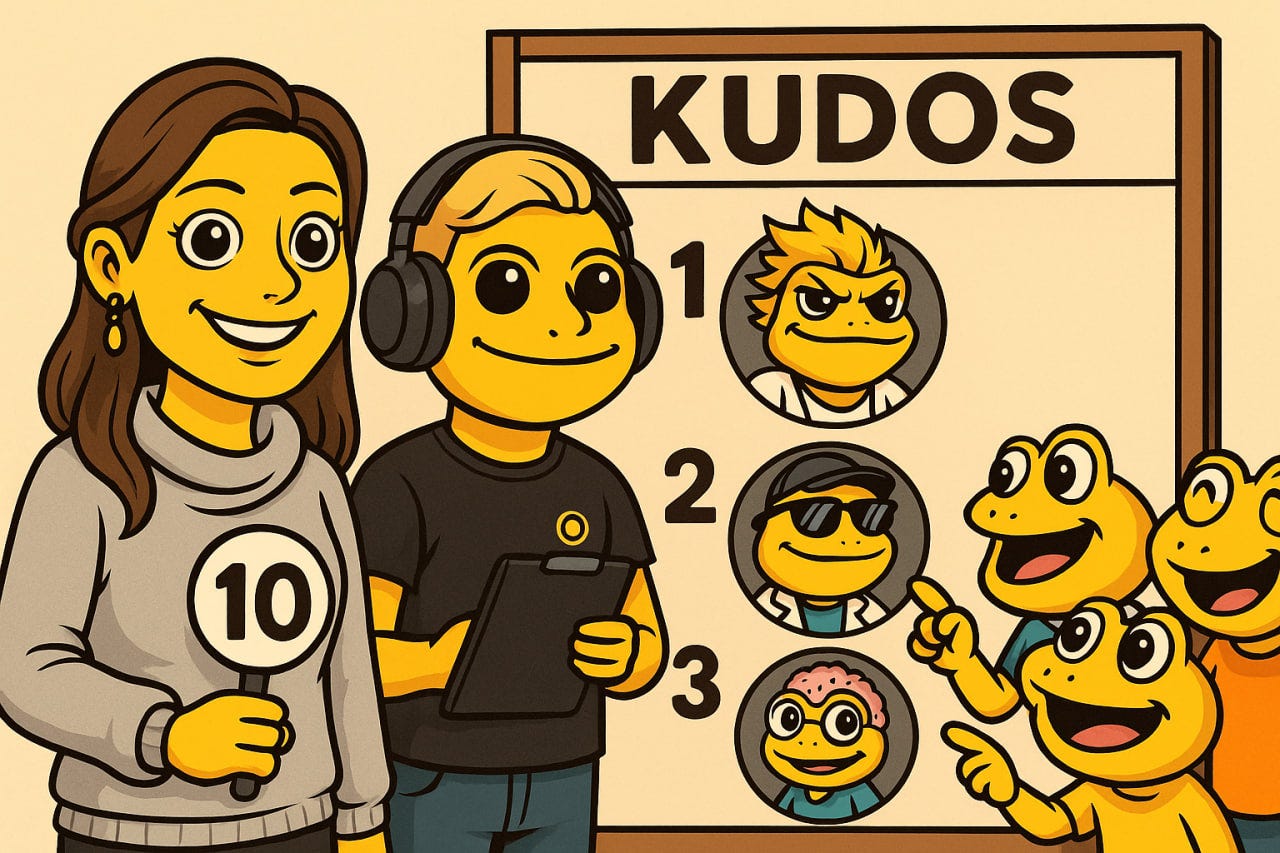The Format #055
Huge HubSpot risks, a Toad Takeover, the death of the link and a (not so) gentle singularity.
Happy Friday! 🌞
Today we’ll be looking at:
The death of SEO and the backlink 🔗
The need for a CommunityOS 👀
LLM’s are coming for Adobe, and quick 🤯
Why integration strategy is everything 🤘
We hit the singularity, and no one noticed ⚫
Anyway let’s jump in…
HubSpot is the first CRM to be deeply connected with OpenAI's ChatGPT
At first glance this announcement sounds EPIC.
Thanks to HubSpot’s ChatGPT connector, with just a few clicks hundreds of thousands of companies can now automate huge parts of the data analysis process. They’re able to ask all sorts of questions about what’s really happening and dive into patterns in their sales funnels and broader systems.
The upside here is hard to downplay, this is undoubtedly a huge win for HubSpot and for their customers.
But…
It does raise some pretty huge concerns and questions, something Saurahb Moody sums up best in his follow-up post to the announcement:
The 4 hidden risks he outlines:
🧠 𝟭. 𝗟𝗼𝘀𝘀 𝗼𝗳 𝗗𝗮𝘁𝗮 𝗦𝗼𝘃𝗲𝗿𝗲𝗶𝗴𝗻𝘁𝘆 → Once patterns from your pipeline train an external model, ownership of that derivative intelligence is… murky.
🤖 2. 𝗨𝗻𝗶𝗳𝗼𝗿𝗺 𝗜𝗻𝘁𝗲𝗹𝗹𝗶𝗴𝗲𝗻𝗰𝗲 = 𝗖𝗼𝗺𝗽𝗲𝘁𝗶𝘁𝗶𝘃𝗲 𝗣𝗮𝗿𝗶𝘁𝘆 → If every company receives the same persona suggestions or churn predictors, insight stops being a moat.
💸 3. 𝗩𝗲𝗻𝗱𝗼𝗿 𝗟𝗼𝗰𝗸-𝗶𝗻 𝘃𝗶𝗮 𝗚𝗣𝗧 𝗣𝗹𝘂𝗴𝗶𝗻𝘀 → Workflows now rely on both HubSpot and OpenAI, limiting exit options and pricing leverage.
🧩 4. 𝗦𝗲𝗰𝘂𝗿𝗶𝘁𝘆 𝗦𝘂𝗿𝗳𝗮𝗰𝗲 𝗔𝗿𝗲𝗮 𝗝𝘂𝘀𝘁 𝗘𝘅𝗽𝗹𝗼𝗱𝗲𝗱 → A direct line between CRM and LLM introduces new tokens, endpoints and user roles, raising the likelihood of prompt injection, data leakage or accidental over-sharing.
And lastly, my biggest concern…
The more value flows through ChatGPT with their connectors, integrations and (usually amazing) features, the easier it becomes for OpenAI to launch it’s own vertical tools.
Is ‘OpenHubSpot’ only a matter of time? 😉
General-purpose AI isn’t cutting it anymore.
3 patterns I’m tracking across successful vertical AI startups:
First, they pick massive but high-friction and high-value workflows.
Second, they build more than model wrappers. They create proprietary feedback loops and data assets that compound over time.
Third, they expand from beachheads of earned trust. They wedge into multi-billion-dollar industries by solving problems in the hardest, least glamorous corners.
This post from Ashu Garg explores a theme we’ve been thinking about a lot recently, the best way to create highly valuable tools that integrate deeply into an industry, solving a wide range of problems for a specific user.
For us this has been about going all in on web3 communities and creating a number of high-value workflows to become the ‘Web3 Community Operating System’.
We’re not quite there yet, we’re building towards this vision though, and rapidly.
Web3 communities have a tonne of complex coordination problems that are echoed in so many other types of community, organisation or industry.
The collective intelligence and systems we will build from - solving problems for web3 communities - may just give us the tools and insight we need to scale into many other industries… but that comes later.
The 2 token model for public goods funding
This article dives into the problems that are faced when an organisation has to balance more than just the goal of: “making as much money as humanely possible”, and the friction and tensions that can come from this.
This is a problem that is faced by many public goods projects. How can they align people around both the mission (building the public good) and making money? And how can they do it in a way where one doesn’t overly compromise the other?
This piece proposes that the best way is by splitting up the functions into 2 separate tokens:
A governance token: '“Optimised for harnessing collective intelligence and allocating shared resources effectively”
An endowment token: “Optimized for value accrual and sustainably scaling the project.”
The theory: by separating the tokens, they can both do their jobs better, and there is less need for compromise in the goals of the project.
Other articles + videos we’ve found interesting this week…
The Gentle Singularity → Mr Optimism himself (Sam Altman, CEO of OpenAI) talks about how we are already past the ‘point of no return’ for AI, he outlines the abundance and wonders of this future, and also the speed at which we’ll get their thanks to rapid self-improvement and recursion.
2025 has seen the arrival of agents that can do real cognitive work; writing computer code will never be the same.
2026 will likely see the arrival of systems that can figure out novel insights. 2027 may see the arrival of robots that can do tasks in the real world.
The 2030s are likely going to be wildly different from any time that has come before.
UX in the age of AI → Another fortnight, and yet another powerful tweet from the incredible Andrej Karpathy.
This time exploring the imminent threat to apps that are locked behind complex UI’s (Adobe we’re looking at you 😉). These apps will struggle to plug into the LLM-driven workflow’s of the agentic (near) future.
AI, Agency and the Erosion of the Link Economy → AI chat interfaces like ChatGPT deliver answers directly to the reader, with no links to the primary content sources. As this ‘link traffic’ slows, authors and entire distribution and monetisation layers are shrinking. Which revenue models might win in this post-SEO world? 🤔
Privy and Stripe: Bringing crypto to everyone → Privy, one of the best developer products in web3, and powering over 75M accounts/wallets (including those in the Open Format platform ❤️) have just announced that they are being acquired by Stripe. 👀
What we’ve been up to…
Discord first, now Telegram! 🧠
Earlier this week we shipped a pretty huge feature, now you can add a community assistant to Discord and Telegram.
Initial feedback has been great, and we can’t wait to get the next round of communities onboarded!
Andy shared exactly how it all works in Happy Hacking v0.2.0 or you can check out the video below for a quick - real time - 90 second walkthrough.
Open Format Turbo Takeover 🤩
Over the next 8 weeks me and Sarah are going to be running a VERY exciting experiment. We’re going to be working with the Turbo Token community (a memecoin with a market cap of $290M) to help train their Community Brain...
Our Community Assistants are live across Turbo’s Telegram and Discord and they have their Open Format dashboard for analytics, sentiment and rewards recommendations all set up. Every day we’re going to be logging into their dashboard and seeing what our community assistants are recommending as rewards across their channels. We’ll be reviewing, rewarding people and, critically, making notes of every suggestion and every piece of insight coming up from our assistants to really start the fine tuning.
Stay tuned to find out how it goes! We’re HYPED!
EthCC? You there?
In a couple of weeks we’re going to be heading to Cannes for EthCC.
If any of you are there we’d love to meet up for a drink and chat! Let us know. 💜
Your Web3 Community Operating System
Over the past week or so we’ve been really exploring how we talk about ourselves and the value that we bring to communities.
We have a new (and sexy 😍) website coming very soon, but in the mean time we’d love your thoughts on some of the language and framing we’ve used in this 1-pager.
Also if you know any community managers in web3 who might find this interesting or would be up for a call for insight, we would LOVE an intro. Thank you. 🌞
That’s all for this week.
Have a great weekend, Dan and the OPENFORMAT team 👋🏽
Join our community
Join our Telegram group, The Format, for relevant news and conversations.
Check out our website (feedback much appreciated!!)
Join our Discord to get all the real-time updates on what is being built with Open Format
Subscribe to our YouTube → we are currently running a build series where we are streaming the whole process as we build our new product in public
Dan and Sarah from the Open Format team rewarding the Turbo community with Kudos for meaningful contributions across Discord and Telegram - By ChatGPT







